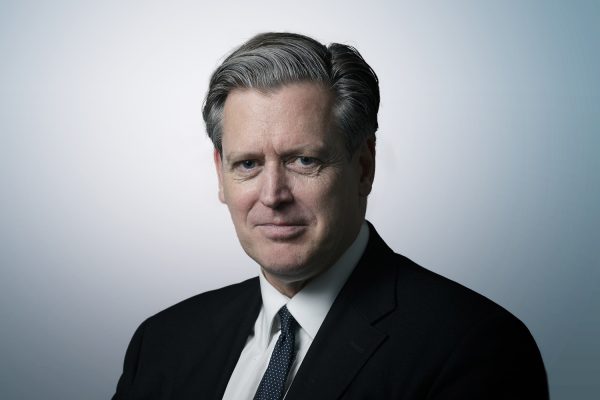
David Walbank KC has released a video case review of R (Chapter 4 Corp t/a Supreme) v Southwark Crown Court [2023] Costs LR 897, in which the Legal Aid Board was hit with a claim for almost £6 million costs incurred by a private prosecutor in respect of a global counterfeiting trial heard at the Southwark Crown Court.
David specialises in the trial of economic crime (white collar fraud, bribery & corruption, regulatory offences and the proceeds of crime). He was formerly Standing Counsel to the Revenue and Customs Prosecutions Office and Standing Counsel to the Department for Business Innovation and Skills Department and is now instructed almost exclusively for the defence. As well as advising and representing suspects and defendants in the most complex and sensitive of financial investigations and prosecutions, he is also the crime correspondent for the premier legal periodical, the New Law Journal – for which he pens his fortnightly ‘Crime Brief’ column – and he is, in addition, the founder and frontman of the criminal law video updating website, [CrimeCast.Law].
For free and instant access to his video case review of Chapter 4 v Southwark Crown Court, you can visit [CrimeCast.Law] David says as follows:
“The facts were that Chapter 4 was a U.S. company selling high quality clothing and accessories. It traded in many countries around the world and operated retail outlets at a limited number of sites in the United States and Europe, including in London. It also sold its merchandise on various websites. It operated in this country through of a UK-registered company called 1994 INC Ltd. The identifying trademark of Chapter 4 was a red and white logo with the single word ‘Supreme’. This was the logo that was used at its retail outlets as well as on its websites. Over a number of years, Michele and Marcello Di Pierro traded in counterfeit ‘Supreme’ branded goods. They opened retail outlets in Spain and in China, using a red and white logo that was identical in appearance to those used in the genuine outlets operated by Chapter 4. They also set up websites which had every appearance of being genuine. They even had offices and warehouses in San Marino and Bulgaria. They incorporated, as part of their fraud, a company called IBF Limited. In short, their operation was both sophisticated and complex.
Chapter 4 instituted civil proceedings in a number of jurisdictions, but those proceedings failed to halt the fraudulent activity. They then decided to commence criminal proceedings in England. They instructed their London solicitors, Howard Kennedy LLP, who had already been involved in civil proceedings against the di Pierros, and they retained distinguished leading counsel. Consideration was given to referring the case to the police or the Crown Prosecution Service but leading counsel advised that neither had the resources or expertise to take on the conduct of this prosecution, so no approach was made. After summonses were issued, the di Pierros made a succession of attempts to stop the criminal case. These included applications for the summonses to be set aside, a dismissal application and an application to stay the proceedings as an abuse of the process of the court. All these applications were unsuccesful and, in June 2021, the di Pierros and their company, IBF Ltd, were tried in the Southwark Crown Court. At the end of the 3-week trial, on 24 June 2021, they were convicted and they were sentenced on the following day, 25 June 2021. HHJ Beddoe was invited to make an order for payment of prosecution costs from central funds under section 17 of the Prosecution of Offences Act 1985, to be assessed. Nothing was said about the amount of the costs claimed. On the question of costs, the judge said as follows:
‘I was initially inclined not to make such an order. In coming to that preliminary conclusion, I was taking into account my conclusion that this prosecution was not brought so much to protect the rights of the consumer, but to protect the commercial interests of the prosecutor. I was influenced by the fact that the prosecutor is essentially a United States company and I was also taking into account that the United Kingdom had provided that prosecutor with a forum conveniens in which to prosecute this case at considerable expense already to the public because of course the prosecutor in a criminal case … unlike a complainant or a claimant in a civil court does not have to pay for the operation of the court itself … Added to that there was also the issue … that the prosecutor had elected not to seek the assistance of a United Kingdom prosecuting authority for the purposes of these proceedings. However, I have resiled from that conclusion … [essentially because of a number of links to the UK on the facts of the case] … In the end therefore I am content to honour the general rule that the court should make an order under this section unless there are very compelling reasons not to do so. I do think however that whoever has responsibility for taxing such application for costs in the overall interests of the public should have an eye on Crown Prosecution Service rates rather than anything else.’
Six months later, the Legal Aid Agency received from Chapter 4 a claim for prosecution costs in the sum of very nearly £6 million. After objection was raised by the LAA, the matter was brought back before HHJ Beddoe on 19 July 2022. At that hearing, the judge referred to his observations at the original sentencing hearing in June 2021 and said this: ‘I sufficiently indicated that what was recovered by the prosecutor should be capped by the application of CPS rates for the work undertaken rather than by what I anticipated would be … the enormous costs actually incurred by the prosecutor …’
The private prosecutor applied, with permission, for judicial review of the latter decision, submitting that the judge had no jurisdiction to make the second order as to costs in July 2022. In handing down the judgment of the court, William Davis LJ & Jeremy Baker J set out section 17 of the Prosecution of Offences Act 1985 the relevant parts of which read as follows:
(1) … the court may – (a) in any proceedings in respect of an indictable offence … order the payment out of central funds of such amount as the court considers reasonably sufficient to compensate the prosecutor for any expenses properly incurred by him in the proceedings …
(2A) Where the court considers that there are circumstances that make it inappropriate for the prosecution to recover the full amount mentioned in subsection (1), an order under this section must be for the payment out of central funds of such lesser amount as the court considers just and reasonable.
Their Lordships also referred to R v Kent (Michael Peter) [1983] 1 WLR 794; R (Virgin Media Ltd) v Zinga [2015] 1 Cr App R 2; Darroch v Football Association Premier League Ltd [2017] Lloyd’s Rep FC 65 and to R (TM Eye Ltd) v Southampton Crown Court [2022] 1 WLR 1114, the last of which was itself the subject of a CrimeCast video case review, first uploaded to the website on 17 December 2021.
The court then held as follows:
1. In the second of his costs orders, made in July 2022, the judge capped the remuneration of the prosecutor to CPS rates. That order was quite different in its terms from the one made 13 months earlier. He was not just correcting an error in the earlier order.
2. An application under the slip rule could only have been made within 56 days.
3. He had no jurisdiction to make the order he did in July 2022 and it was amenable to judicial review even though it related to a trial on indictment.
4. However, the situation had only arisen because of culpable failings on the part of the private prosecutor with regard to the claim for costs. It was, therefore, appropriate to depart from the general rule and, although the judicial review claim had succeeded, there would be no order for costs in the JR proceedings.
And so, for all those reasons, the judge’s second costs order was quashed and the first costs order, as pronounced in open court, was extant. A determining officer would take into account the judge’s comments when assessing what amount would be reasonably sufficient to compensate Chapter 4 in respect of their costs of bringing the prosecution.”

